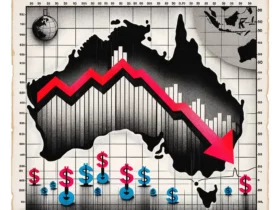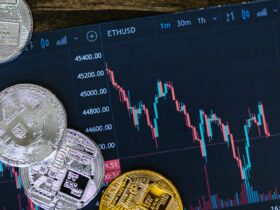In a commodity market, investors may buy and sell commodities such as spices, crude oil, precious metals, and energy globally. Commodities markets are found in almost every nation. Commodities are raw materials or agricultural products that may be traded on the open market. A centralised and liquid commodity market allows producers and consumers to access a wide range of commodities in a regulated environment.
Participating in commodity trading might help you to diversify your asset portfolio. Investors may make investments in both perishable and non-perishable items since doing so will assist them to face fewer risks and give them a buffer against the country’s inflationary growth rate.
To obtain exposure to trading commodities,investors might choose to invest in firms that have exposure to commoditie, or they can invest directly in commoditie via the use of futures contracts.
Hard commoditie and soft commoditie are the two types that are often categorised.
Hard Commodities – These are natural resources that are mined or harvested to produce them. The hard commodities are classified as follows:
Metals: gold, silver, or copper are the most common.
Energy sources include gasoline, crude oil, and natural gas.
Soft Commodities – Agricultural products and animals are examples of soft commoditie.
Rice, wheat, salt, and corn are examples of agricultural goods.
Eggs, live cattle, or feedlot cattle are examples of livestock.
The trading commodities is dominated by two significant participants: producers and traders.
Speculators are traders in the commodities market who keep an eye on the market’s prices and make predictions about how they will change in the future. If they anticipate that the price will rise, they will purchase a commoditie contract and sell it when the price increases. Those who anticipate a decrease in the price of commoditie sell their commodity contracts and immediately repurchase them when they believe the price will fall further. Their primary goal is to generate a significant profit in whatever market they choose to participate in.
Those that hedge commodities are the manufacturers and producers who utilise the commodity futures market to decrease risk and safeguard their businesses.
Commoditie market diversification: Even a tiny fraction of your assets invested in the commodity market may benefit several different people. Even if stock prices continue to decline, this will assist them in achieving a high rate of return on their investment.
Margin trading: Compared to other market dealers, commodities brokers charge a far lesser margin for their transactions. It enables brokers to trade using borrowed money, resulting in profits for both speculators and hedge funds on every transaction they make.
The following aspects should also be noted-
Commodity investments may only be concerned with accumulating capital profit. You must have previous experience in the commodities market to earn significant profits.
The commodity market is very volatile, and fluctuations in demand may significantly impact the price of commodities. Because of the significant volatility, the prices do not stay steady. It leads investors to miss out on substantial gains.
Australia is the thirteenth most significant economy in the world. It is also the world’s 24th biggest exporter and importer in both value and volume. China, Japan, and the United States are among Australia’s top five trading partners, both imports and exports.
Iron ore, petroleum gas, gold, aluminium oxide, and crude petroleum are among the most important commodities exported by Australia. Australian commodity importers include refinery products, such as gasoline and diesel, and metals such as gold, petroleum coke, and zinc ore.







